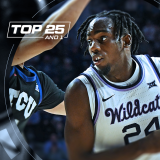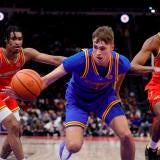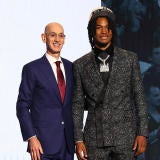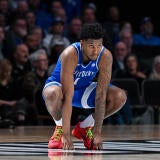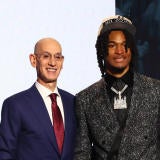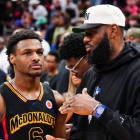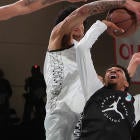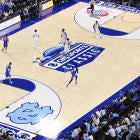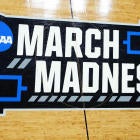As the first of three trials in the federal government's ongoing effort to nix corruption within college basketball bleeds over into a second week, the NCAA says it is watching and waiting to see if – or when – relevant information related to potential violations comes out.
"We are closely monitoring the trial of three individuals charged with corruption in college basketball," the NCAA said in a statement Friday to The Washington Post. "If information relevant to potential NCAA violations is uncovered, we will continue to follow-up and investigate all the facts."
Meanwhile, the grimy minutiae of college basketball and its underbelly is being laid bare in a courtroom in New York. Salacious details – from backdoor deals worth upwards of $100,000, details of bidding wars on prospects, and the incredulous lengths at which schools, agents and apparel companies will go to get involved with elite prospects – is being exposed with great detail by those intimately familiar with the process.
Brian Bowen Sr., the father of former five-star prospect Brian Bowen II, who signed with Louisville out of high school, was the star witness last week. He testified at length about how Adidas paid him for his son to play for the shoe company's youth league for a season. $25,000, he says. $7,000 more than what a Nike team offered, he testified.
That's bombshell information in itself. It doesn't include his testimony that, additionally, college programs all willingly offered at least twice that amount.
The Post reports that, despite the clear violation of NCAA rules being spelled out in court over the past week, federal authorities have asked the NCAA to hold off on any investigations related to the Justice Department's ongoing probe until the conclusion of the last of three trials in the case. That could come in mid- to late-2019.
As for what repercussions might be on the table remains unclear, but what has crystallized over the past week – something that has been known for some time – is that apparel companies' illicit interests in prospects starts at the grassroots level and crescendos as they near the professional level.
Meantime, college hoops programs ensnared in the ongoing case can only mimic the NCAA, watching and waiting to see if – or when – relevant information related to potential violations comes out.




